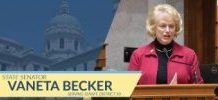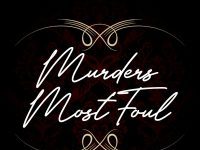Game Feed Nostrums
By Richard Moss MD
I went to a “Game Feed†recently, an event put on annually by a local who goes by the name of “Chief.†He organized this every January, in the winter, on a Saturday, in the middle of God’s country, on the outskirts of the town of Duff in Dubois County, southern Indiana.Â
It was a cold day with freezing temperatures, which was better than last year when it was raining and muddy. The dirt road was rocky and curving and surrounded by dense forest; it led into the property where the hunters gathered. It included a rundown but functioning old cabin that dated back more than a hundred years, something from a bygone era within which was a fireplace, a perfect place to congregate and escape the cold. Some one hundred or so hunters and friends met here every year. These were gun people, a Second Amendment crowd, comfortable in the world of guns, ammo, camouflage, decoys, field dressing, butchering, and living off the land, my kind of people. Last year when I visited during my Congressional campaign they received me well, recognizing me as a fellow Second Amendment patriot. There were all ages represented including my son and his friends in their early 20s, and then up into the 50s, 60s, and beyond.Â
The theme here was “game,†which meant flesh garnered through hunting, not from the supermarket or deli, and so the various meats were lean, free of chemicals or additives, as good and tasty as it got. The hunters prepared the meats, cooking, sautéing, grilling, barbecuing, or frying on small gas or other makeshift stoves in the open weather. There was turkey, pheasant, duck, moose, deer, squirrel, beaver, elk, rabbit, and boar. They prepared it fresh, the enticing aromas everywhere. Some of the morsels were wrapped in bacon or strips of ham, or layered with cheese, accompanied by different sauces or gravies, or plain, the wondrous flavors of the ungarnished meat more than delicious enough.Â
The spirits flowed freely including whiskey, gin, bourbon, vodka, rum, beer, and homemade wine, accompanied often by cigars, manly combinations. There was a plentitude of small fires around which the congregants huddled, drinking and eating, enjoying the camaraderie and their shared passion for hunting. The conversations were lively and good-natured.Â
I spent time with my son and his friends. Most of them had been very supportive of my prior political runs; they were a rarity, it seemed today, young conservatives. In somewhat inebriated fashion, they bemoaned the changes occurring in the country, the breakdown of the family, the coarsening of the culture, and the rejection of faith. There was the ticking debt bomb. They worried also about future assaults on the Second Amendment and their right to self-defense. They expressed unease about their future, and I did not blame them. Â
These young men and the other kindred spirits here, patriotic, gun-loving Americans in flyover country, were a despised demographic in today’s media and culture. Taken together, they were quite a motley collection: factory workers, small businessmen, farmers, truckers, mechanics, builders, marketers, salesmen, website designers, students, teachers, merchants, retailers, attorneys, craftsmen, accountants, and so on, in other words, the heart and soul of the nation. They were united by a love of the outdoors, guns, and the hunting arts, and, I suspected, many shared values. While conversing with them, I felt a sense of despair, as if I were witnessing the passing of a way of life and culture, one that had dominated the country since its inception, had always been mainstream, but had now become marginalized and under attack.Â
These young people and, I suspected, the majority of those present that day, understood that America was a unique phenomenon. Its formation was providential and based on a most improbable sequence of events and convergence of philosophies; it was unlikely to be repeated. The way of centralized planners and the encroaching, coercive state was the way of all history and of the world, today other than a precious few outliers, led, of course, by this country. Â
The United States was different in that it upheld from its origin a belief in the sanctity of the individual, the right to self-defense, small government, the free market, and Judeo-Christian tenets. Most important was the influence of the Bible, and the belief that individuals were created in the image of God. Indeed these were the magic ingredients, the critical strands that the founders cobbled together to forge a nation that rejected tribal norms and historical precedent and embraced instead of inalienable rights and liberty.Â
I hoped that America would withstand the assaults from within and not go the way of Rome and other great civilizations that have come and gone. I prayed that a divided nation with so many of its citizens have lost the plot of America, would not succumb to illiberal and hostile ideologies, culminating in its demise and fragmentation, a once magnificent civilization that ultimately could not be sustained.Â
Yet my young friends were confident even as they expressed their apprehensions. Their eyes were glazed, intoxicated as they were, but they were laughing and rowdy. Through the haze of gin and bourbon, they espoused optimism. They stumbled through defenses of the American way. They drunkenly tripped over declarations of allegiance to free enterprise. And, yes, despite the alcohol, they were rational. Â
Many of them were jocks from high school days including my son. They were a hardy bunch, full of themselves, and of sturdy timber. They had engaged in high-level contests at young ages on the courts and fields of athletic competition. Victory and defeat had seared them. They understood discipline, teamwork, and sacrifice. Young leaders, they were among the best this nation had to offer. They did not doubt themselves or their future prospects. They had their plans come what may. They intended to continue the plot of America, the story of America, the great dream of America. I believed in them, and the country depended on them – and millions of others like them. I hoped they would succeed, convince others of their creed, and thus save the nation.Â
FOOTNOTE: Dr. Moss is the author of “A Surgeon’s Odyssey†and “Matilda’s Triumph†available on amazon.com and at Barnes and Noble in Evansville, IN. For more information visit richardmossmd.com. Find Richard Moss, M.D. on Facebook, Twitter, and Instagram.






